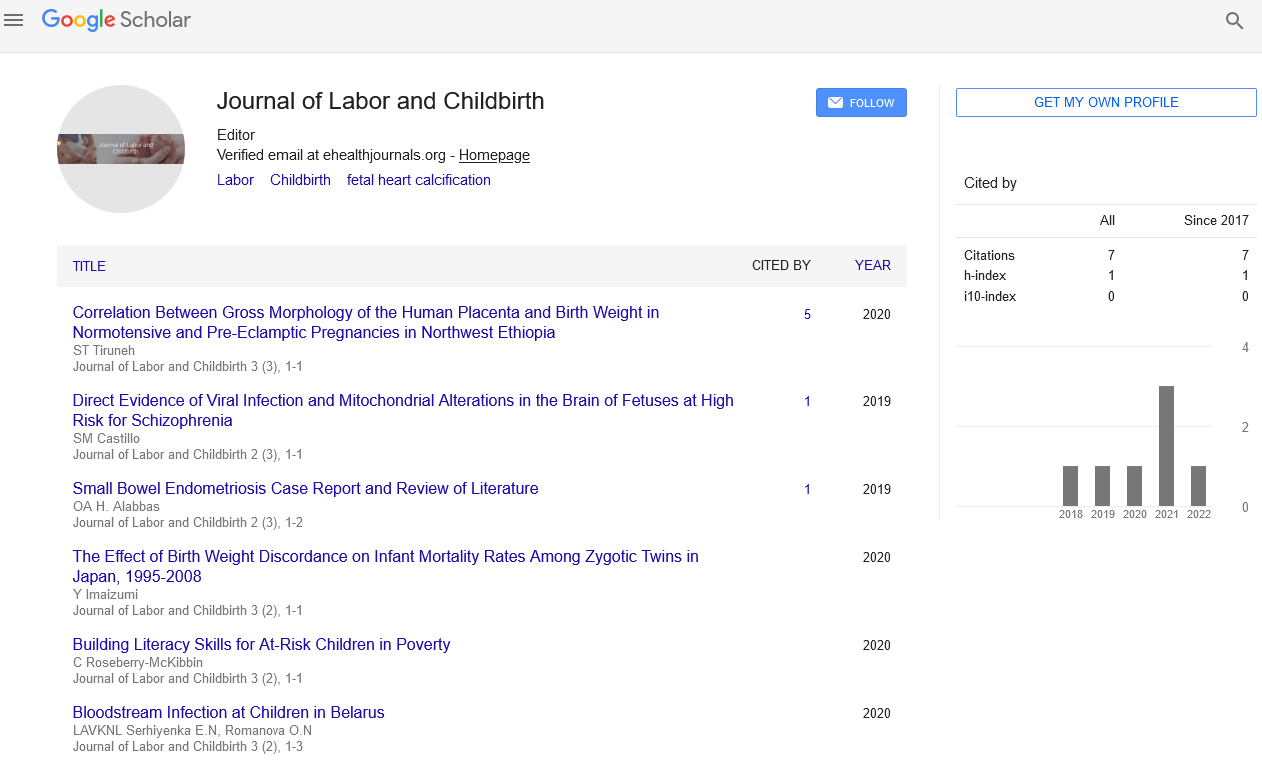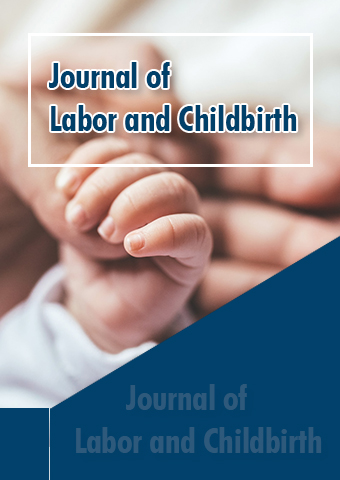Perspective - Journal of Labor and Childbirth (2024) Volume 7, Issue 6
Neonatal Intensive Care Unit (NICU): A Comprehensive Overview
- Corresponding Author:
- Amir Horev
Department of Gynaecology,
Haafif University,
Haifa,
Israel
E-mail: amirhorev1@clalit.org.il
Received: 18-Nov-2024, Manuscript No. jlcb-24-152774; Editor assigned: 21-Nov-2024, PreQC No. jlcb-24-152774 (PQ);Reviewed: 05- Dec-2024, QC No. jlcb-24-152774; Revised: 17-Dec-2024, Manuscript No. jlcb-24-152774 (R); Published: 24-Dec-2024, DOI: 10.37532/jlcb.2024.7(6).278-279
Introduction
The Neonatal Intensive Care Unit (NICU) is a specialized area within hospitals designed to provide intensive care to newborns who are critically ill or premature. These units play a crucial role in modern healthcare by offering life-saving support and monitoring to vulnerable infants during their first days, weeks or even months of life. This article explores the functions, importance and challenges of the NICU, as well as the emotional and psychological impact on families.
Description
The purpose and functions of NICU
The primary purpose of the NICU is to provide specialized care to newborns who require close monitoring and treatment due to various conditions. These conditions may include premature birth, low birth weight, respiratory distress, congenital anomalies and infections. The NICU is equipped with advanced medical technology and staffed by a multidisciplinary team of healthcare professionals, including neonatologists, pediatricians, nurses, respiratory therapists and other specialists.
NICUs are classified into different levels based on the type and intensity of care they provide:
Level I NICU: Provides basic care for healthy newborns and those who require minimal support.
Level II NICU: Offers intermediate care for newborns who are moderately ill or born slightly premature.
Level III NICU: Provides intensive care for critically ill or very premature newborns.
Level IV NICU: Equipped to offer the most advanced care, including surgical interventions for severe conditions.
Each level of NICU is designed to cater to the specific needs of newborns, ensuring they receive the appropriate level of care based on their medical condition.
Common conditions treated in the NICU
Newborns admitted to the NICU often face a range of medical challenges that require specialized care. Some of the most common conditions treated in the NICU include:
Premature birth: Babies born before 37 weeks of gestation are considered premature and may require respiratory support, temperature regulation and nutritional assistance.
Respiratory Distress Syndrome (RDS): A condition commonly seen in premature infants, RDS occurs when a newborn’s lungs are not fully developed, leading to breathing difficulties.
Jaundice: A condition characterized by high levels of bilirubin in the blood, causing yellowing of the skin and eyes. Phototherapy is often used in the NICU to treat severe jaundice.
The role of technology in the NICU
Technology plays a vital role in the NICU, enabling healthcare providers to monitor and treat newborns with precision. Some of the key technologies used in the NICU include:
Incubators: Specialized beds that provide a controlled environment for premature and sick newborns, regulating temperature and humidity.
Ventilators: Machines that assist or take over the breathing process for newborns with respiratory issues.
Monitors: Continuous monitoring of vital signs such as heart rate, respiratory rate, blood pressure, and oxygen levels.
These technologies are critical in supporting the health and development of newborns in the NICU, ensuring they receive the care they need to survive and thrive.
Emotional and psychological impact on families
Having a newborn in the NICU can be an overwhelming and emotionally taxing experience for families. The sight of their baby connected to various machines and the uncertainty of the outcome can lead to significant s tress, a nxiety and even depression. Parents may struggle with feelings of guilt, helplessness and fear for their child’s future.
To support families during this challenging time, many NICUs offer resources such as counseling, support groups and educational programs. These services help parents understand their baby’s condition, learn how to care for their newborn and connect with other families going through similar experiences. The role of social workers and psychologists in the NICU is crucial in providing this support and helping families navigate the emotional challenges they face.
Long-term outcomes for NICU graduates
The long-term outcomes for babies who graduate from the NICU can vary widely depending on their medical condition, the level of care they received and other factors.
Many babies who spend time in the NICU go on to lead healthy, normal lives, although some may require ongoing medical care or developmental support.
Advancements in neonatal care have significantly improved the survival rates and quality of life for NICU graduates. However, some children may face challenges related to developmental delays, learning disabilities or chronic health conditions. Early intervention programs and regular followup care are essential in supporting the ongoing development and well-being of these children.
Conclusion
The Neonatal Intensive Care Unit (NICU) is a critical component of modern healthcare, providing life-saving care to the most vulnerable newborns. Through the expertise of a multidisciplinary team and the use of advanced technology, the NICU offers hope and healing to families facing the challenges of premature birth and other serious medical conditions. While the journey through the NICU can be emotionally challenging for families, the support and care provided within this specialized environment play a vital role in ensuring the best possible outcomes for newborns. As neonatal care continues to advance, the future holds even greater promise for the health and well-being of the tiniest patients.

